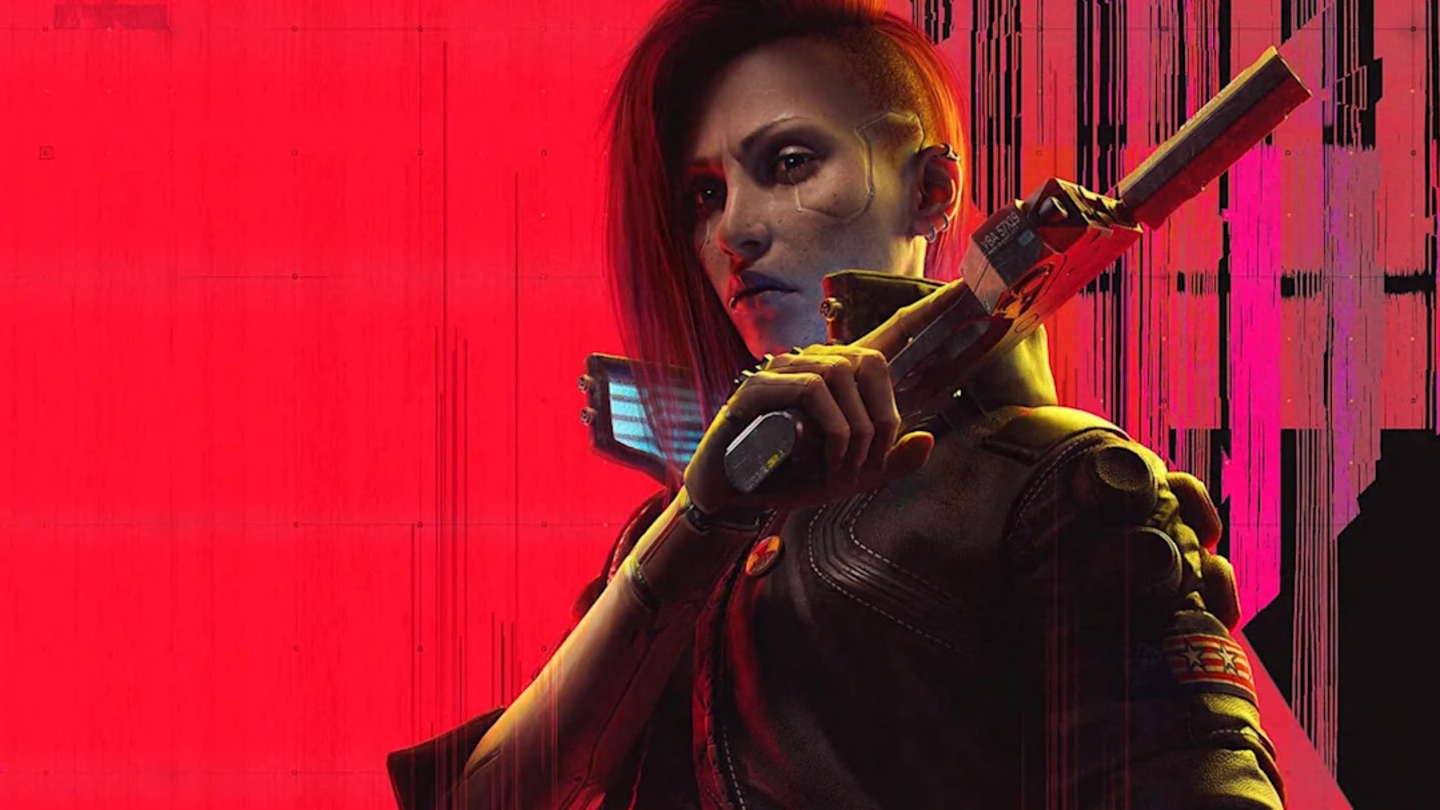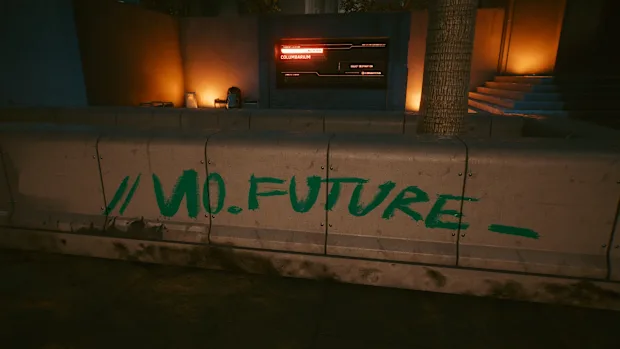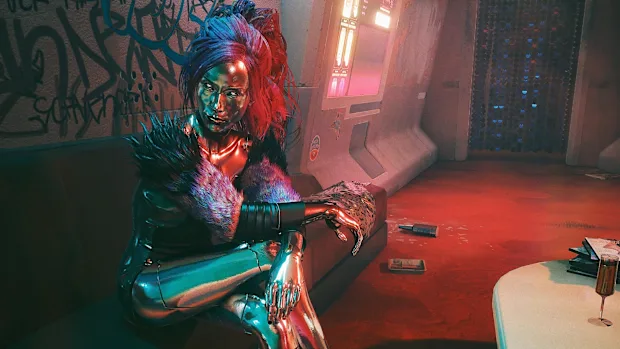
Have you ever found yourself waking up in the dead of night, unsure of your identity for a fleeting moment? Or have you ever felt as though you’re not truly yourself? That’s how I always feel – empty, powerless – every single instant.
Spoilers follow…
When considering the term “punk”, one might associate it with rebellion or nonconformity rather than anarchy or anti-capitalism. However, understanding its identity is crucial. The early British punks, through songs like the Sex Pistols’ ‘God Save the Queen’, expressed a sense of nihilistic rejection of the status quo, which was vividly portrayed in their clothing. Their outfits were often hastily assembled with safety pins, spit, and tape, symbolizing resistance against societal norms, yet also embodying a sense of shared identity.
In the initial main mission of Cyberpunk 2077, you infiltrate a lair of ruthless scavengers who have been illegally harvesting human body parts for profit on the black market. To these individuals, the human body is merely a commodity – something to be traded for money. As you ascend, a desperate plea for help is etched onto the elevator door: “No future,” symbolizing a people whose bodies have been stripped away from them.

In my teenage years, music shaped who I was, just like how goths, rockers, mods, new romantics, and punks were defined by the tunes they listened to. The same can be seen today with the grime scene influencing UK street style, and in Tokyo’s back alleys, you’ll notice the impact of pop idols on kawaii fashion. Fast forward to the future in CD Projekt’s 2077, and people are still finding solace in music, using it as a beacon to guide their identity – a deeply personal form of expression that reflects who they truly are.
In a society where brands rule supreme, stripping away individuality to make everyone a corporate clone, the only means of rebellion might be to brand oneself in return. Just as music influences our culture, corporations exert their power, blasting ads into any empty nooks and crannies, imprinting catchy tunes and catchphrases on your mind.
Johnny Silverhand, the veteran rockerboy, gets locked inside your consciousness. Eventually, it’s revealed that his digital persona will completely replace yours, making him the one in control. As the game progresses, you’ll end up wearing his clothes, using his gun, and driving his Porsche. This metamorphosis is a mutual process.

Just as various forms of art and cultural elements shape our identity, so too do the people we encounter in life. People have the capacity to transform, and this happens frequently. Do you always present your authentic self in every social interaction, or do you adjust your behavior based on different environments? Temporary adaptations to society are one aspect, but long-term influences such as a couple developing a unique language that only they understand is another.
Just as the Ship of Theseus questions whether a ship remains the same when each of its original parts are replaced, Johnny Silverhand gradually replacing your consciousness raises similar philosophical conundrums. In essence, Johnny is changing the mental building blocks of you, while merging with your identity. If every block has been swapped out, does that mean you haven’t changed at all? Or are you now a blend of two individuals? This brings us to pondering whether identity is defined by our original parts or the sum of our experiences and transformations over time.
The idea presented here is emphasized through global examples of transhuman body modifications, where individuals risk developing a condition known as “cyberpsychosis” when they excessively swap organic parts for mechanical ones in their biological vessel. This piece opens with a quote from Lizzy Wizzy, a musician who covered her skin in chrome, which was spoken only hours before she allegedly killed her partner. One might question whether it was the excessive modifications that led to this tragedy, but on the other hand, maybe this is simply the price of fame.
The theme is shown in modern body modifications worldwide where replacing too many natural parts with cybernetic ones can cause a mental disorder called “cyberpsychosis.” This essay begins with a quote from Lizzy Wizzy, a musician who had her skin replaced with chrome, shortly before she murdered her partner. It’s debatable if this was due to excessive modifications or just the downside of being famous.

As a devotee, I can choose to merge myself with Silverhand’s former partner, Alt Cunningham – now a renegade AI. She explains that despite her transformation, she remains the same individual. Change, she asserts, is merely part of one’s character growth. We humans aren’t defined solely by our uninterrupted sequence of memories over time, for those memories are frequently suppressed or erased.
In your new form, you assume command of Silverhand, now inhabiting a body solely his own. As he prepares to depart from Night City, he finishes up his affairs in a markedly different manner than before. He’s no longer the man he used to be – he’s quit smoking, become more sentimental and introspective, acting with care rather than on impulse, and there’s an air of tranquility about him. Your personality seems to be embedded within him, not just because he wears his skin, but in the way he carries himself.
In Cyberpunk 2077, identity is examined from numerous perspectives through its primary missions, side quests, and auxiliary activities known as “gigs”. This exploration delves into experiences such as merging your nervous system with another person, engaging in a brutal fight with a two-bodied opponent similar to bare-knuckle boxing, and sharing memories with someone as you both submerge in a lake, losing all other sensations.

In this chilly, technological society, individuals yearn deeply for interaction, making “braindances” – immersing oneself in another’s memory and experiencing their emotions during thrilling, terrifying, or delightful moments – a widespread form of entertainment in Night City. Despite this trend, there are still some who fail to comprehend the importance, the human desire, for connection. In the Sinnerman quest, you encounter a corporate lackey who casually mentions her excitement for the day when they no longer require people as actors, mirroring the pro-AI purists of today who are against traditional art.
In other parts of the conversation during the diving expedition, Judy reveals that she’s seeking an authentic emotional response from you, thereby synchronizing your thoughts with hers as you delve into her submerged hometown memories. She thinks that art becomes more impactful through genuine human connection and unfiltered, raw emotions. This could be likened to two minds leaving their individual imprints on each other.
Regardless of whether the thematic consistency in Cyberpunk 2077 was intentional or happened naturally, what matters is that a large team collaborated to produce this cohesive masterpiece that has impacted countless others. Whether by osmosis or otherwise, this extraordinary piece of art came into being as a result of their efforts. These tales have now become part of our collective consciousness, binding us together without the need for personal encounters.
Read More
- Apothecary Diaries Ch.81: Maomao vs Shenmei!
- Gold Rate Forecast
- Batman and Deadpool Unite: Epic DC/Marvel Crossover One-Shots Coming Soon!
- Who was Peter Kwong? Learn as Big Trouble in Little China and The Golden Child Actor Dies at 73
- Mobile MOBA Games Ranked 2025 – Options After the MLBB Ban
- Hunter Schafer Rumored to Play Princess Zelda in Live-Action Zelda Movie
- 30 Best Couple/Wife Swap Movies You Need to See
- Netflix’s ‘You’ Season 5 Release Update Has Fans Worried
- Gachiakuta Chapter 139: Rudo And Enjin Team Up Against Mymo—Recap, Release Date, Where To Read And More
- Summer Game Fest 2025 schedule and streams: all event start times
2025-04-16 12:48